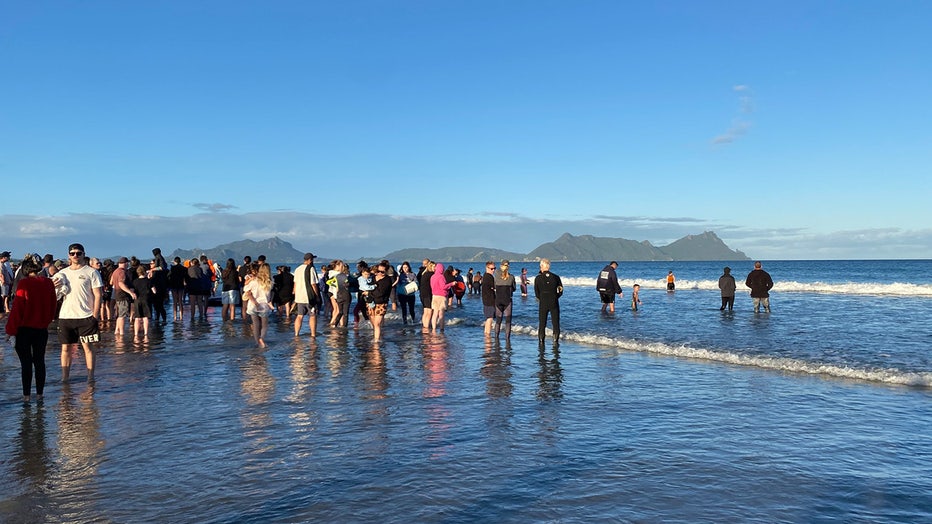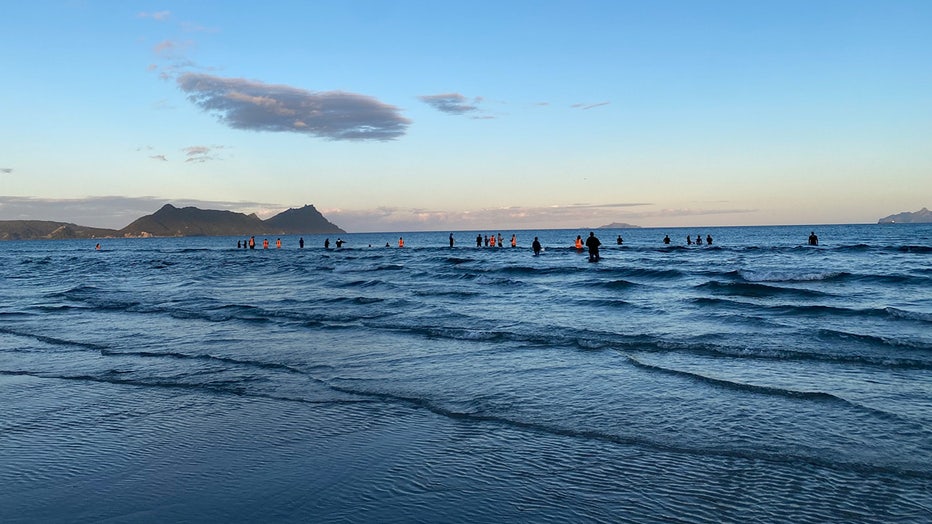New Zealanders work together to save stranded whales

FILE - Pilot whales stranded on New Zealand's Ruakākā Beach. (Credit: Nikki Hartley DOC)
In New Zealand, more than 30 whales were saved after becoming stranded on a beach over the weekend.
The pilot whales stranded themselves on Ruakākā Beach near the city of Whangārei on Sunday.
Members of the public and officials from the New Zealand Department of Conservation worked together to refloat the stranded whales by using sheets and lifting them.
"It’s amazing to witness the genuine care and compassion people have shown toward these magnificent animals," Joel Lauterbach, a Department of Conservation spokesperson, said in a statement. "This response demonstrates the deep connection we all share with our marine environment."

FILE - New Zealanders helping rescue stranded pilot whales on Ruakākā Beach. (Credit: Nikki Hartley DOC)
Four pilot whales ended up dying but the remaining whales were safely returned to the ocean.
The four whales that died consisted of three adults and one calf. A Māori cultural ceremony took place on Monday for the deceased whales as New Zealand’s Indigenous people consider the animals a taonga – a sacred treasure – which means they are considered a cultural significance.
Officials with the conservation agency said that they will continue to monitor the beach to ensure more whales don’t become stranded in the future.

FILE - New Zealanders helping rescue stranded pilot whales on Ruakākā Beach. (Credit: Nikki Hartley DOC)
Stranding hotspot
New Zealand is a whale stranding hotspot and pilot whales are especially prolific stranders.
The country has recorded more than 5,000 whale strandings since 1840. The largest pilot whale stranding was of an estimated 1,000 whales at the Chatham Islands in 1918, according to the Department of Conservation.
It's often not clear why strandings happen but the island nation's geography is believed to be a factor. Both the North and South Islands feature stretches of protruding coastline with shallow, sloping beaches that can confuse species such as pilot whales — which rely on echolocation to navigate.

